Women Directors
Language Worth Repeating
This piece continues a partnership between HowlRound and the League of Professional Theatre Women (LPTW). For many years, LPTW has been publishing an annual magazine, Women in Theatre (WIT). This year they’ve expanded the magazine to include an online format and are collaborating with HowlRound to provide content covering an array of issues and perspectives within the theatre, all highlighting women’s voices. The co-editors for this project are Eliza Bent and Alexis Clements. Look for bi-monthly content from WIT on HowlRound ranging from interviews to articles and blog responses. Find all WIT content here.
Qualify
My notes were a list of apologies that had fallen out of her mouth without hesitation.
Clear direction, diluted by, “Is that alright?”
Clear direction, undercut by, “Does that even make sense?”
Clear direction, undermined by something as simple as, “Okay?” or, “Sorry.”
Here was one of my brightest young directing students and after fifteen minutes of scene work with her peers she hadn’t given one direction that wasn’t plagued with a qualifier or a question mark at the end, taking away any power she had established in her vision. I looked down my notes and my heart broke a little. It felt overwhelmingly familiar. This type of language plagues rehearsal rooms everywhere and it’s not just in the rooms of young directors. However, it seems to seep into rooms led by women directors far more frequently. It’s a language I find myself reverting to much too often. It’s a language of fear, a language of accommodation, and a language of insecurity. So why is it such a common language for women directors? Why does it feel appropriate to ask permission to direct? Why must we apologize for asserting an idea or feel like we’re somehow imposing on actors with our direction? Why is this our language?
Like my directing student, she’s beginning to identify a history of editing her own power.
Shrink
In the fall, a video of an exceptionally articulate Wesleyan University student’s poem “Shrinking Women" started popping up on newsfeeds and blog posts everywhere. In her performance at the 2013 College Unions Poetry Slam Invitational, Lily Myers speaks about the culture of women in her family. She stares across the table at her ever-shrinking mother, her ever-expanding father and brother, and she questions what lessons she has been taught and what traits she has inherited. With powerful lines like, “I have been taught accommodation,” “I have been taught to filter,” “You have been taught to grow out, I have been taught to grow in,” “I have been taught to absorb,” you hear the crowd reverberating with recognition. She highlights a disconnect between the expectations and assumptions of men versus women in her family. Men are expected to speak their minds, women are expected to make space and, in doing so, shrink. Although she was referring to her specific family, the fact that women around the world responded to it so emphatically suggests just how familiar her story and lineage is. Like my directing student, she’s beginning to identify a history of editing her own power.
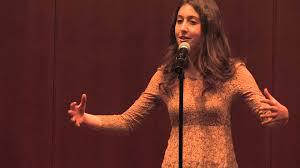
Photo by Button Poetry, Youtube.
What then is the language of power?
Dominate
While in New York City, I worked with a number of young actors who had studied and/or worked under the direction of a prolific and internationally acclaimed director. He was known for breaking actors down to rebuild them in his image. Throughout the rehearsal process actors would get hurt, feel manipulated, complain about being taken advantage of, and describe a consistently competitive energy within the company. Actors seemed broken and miserable under his controlling hand. However, the show would open and the result was always the same: incredibly precise, experimental, and heavy-handed.
The director was the star of every production. You could see his hand in each choice and sense his misogynistic worldview in his treatment of all the iconic roles for women. His directing was undeniably bold and not a bit censored. From the process through the product, he had expanded. He had taken all of the space in the room such that even in production, when he was no longer in the room, his voice was still the loudest. And when it was all said and done, something significant would change about the stories the actors would tell. Instead of the torture and pain, the underlying theme turned to gratitude. They were deeply thankful for the chance to work with such a legend, for the chance to be broken down and built back up again, for the chance to fight for his attention and approval.
He never apologized for his direction, his choices, or his words. He has a following. I thought actors respected him in spite of his unapologetic approach, but I’m beginning to think that it may be because of his unapologetic approach. Perhaps feeling as though they have survived him unifies actors. Perhaps they see it as a taste of the true masters of theatre. Perhaps all of that work and suffering helps to validate their craft and add meaning to their lives. I won’t ever fully understand, but when I think about this story, which is one of many, I wonder if I could get away with the same or if actors would simply call me a “bitch.” Is this the language of men? Is this the language of power?
From my perspective, she was powerful and successful because she had adopted a model for working that was inherently patriarchal and sexist and in doing so, she had risen to the top of a male-dominated field.
Assimilate
She walked into the room, a circle of graduate directing students ready to study her, and she accepted and maybe even inflated with that attention. I was eager to meet her and learn about her journey to becoming one of the most successful American directors of our time. She was confident, she was smart, she was successful, and she infuriated me. I left the room dejected, deflated. From my perspective, she was powerful and successful because she had adopted a model for working that was inherently patriarchal and sexist and, in doing so, she had risen to the top of a male-dominated field. At the top, she wore her reputation as someone “difficult” to work with (aka “a bitch”) seemingly with great pride. She had earned the right to be difficult, because she was powerful. She earned the right to be powerful because she adopted the language of power from her male peers. She played their game.
I replayed her visit in my head over and over, and each time I realized I was getting angrier. Each time, she was becoming more and more reflective of a culture I wanted nothing to do with. I was angry because I desperately wanted and expected her, a successful woman director, to be a model for me, but she wasn’t. She had accepted someone else’s system of power and succeeded within it.
Renew
I call for a revolution of language. I reject the notion that my options for how to be in a creative process are either nice and accommodating or manipulative and renowned. I believe that the language of accommodation and the language of dominance are both deeply rooted in fear. For the former it’s a fear of being considered unlikeable, and for the latter it’s a fear of not having control or not owning the best idea. I believe that directing requires great vision, great attention, great awareness, and great humility. It requires egos to be left outside while bold action and outstanding listening enter the room. I am guided by a small piece of text that I return to season after season as a kind of ritual meditation. It’s from the foreword of Paul Woodruff’s The Necessity of Theater. It reads,
There is an art to watching and being watched, and that is one of the few arts on which all human living depends. If we are unwatched, we diminish and we cannot be entirely as we wish to be. If we never stop to watch, we know only how it feels to be us, never how it feels to be another. Watched too much or in the wrong way, we become frightened. Watching too much, we lose the capacity for action in our own lives. Watching well, together, and being watched well, with limits on both sides, we grow, and grow together.
I return to these words because they are a reminder of how I wish to be in the creative process and a foundation for a new language of power to build from. The balance between watching and being watched calls for empathy and action. When I first read the passage, I was surprised by how revelatory this simple text was. The idea of theatre as a place of seeing was not new—it’s the origin of the word itself and a starting place for most theatremakers. It was the “If we are unwatched, we diminish and we cannot be entirely as we wish to be” portion that stopped me in my tracks. As a director, as a teacher, as a woman, this felt like an urgent reminder to be visible, to allow my work to be visible, and to allow my language to be heard. This text could easily be adjusted to be about speaking and listening, as opposed to watching and being watched, and be just as powerful and pertinent to a discussion on language.
And let’s allow them to take up space, not be brushed to the side and excused for being so presumptuous, but plopped right down into the center of the room.
I am a director. I am a teacher. The way I lead my classrooms and rehearsal rooms needs to model a new language of power—one born out of the idea that you can be both bold and flexible. We should neither soften our vision nor silence our collaborators. We should be the leaders and have the humility to also be led. Instead of feeling threatened by someone other than you contributing a great idea, we should congratulate ourselves for choosing such brilliant collaborators that make the work stronger. A great idea is reflective of strong and clear vision and trust in your collaborators. And the reality is that regardless of whether or not you are a teacher by trade, you will always be a teacher in the example you set, in the words you choose, in the way you work and the priorities you model. So let’s speak boldly, let’s articulate big huge messy ideas that aren’t yet perfected. And let’s allow them to take up space, not be brushed to the side and excused for being so presumptuous, but plopped right down into the center of the room. And let’s invite our collaborators to articulate great big messy beautiful ideas without asking for permission first or excusing them after. Let’s terrify ourselves with just how bold and articulate we can be. Let’s create a language worth repeating.

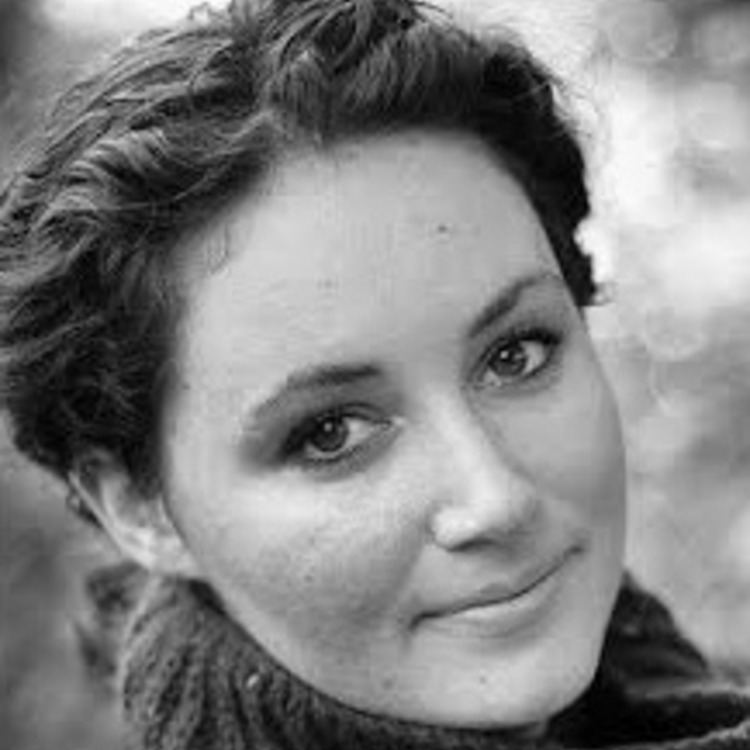


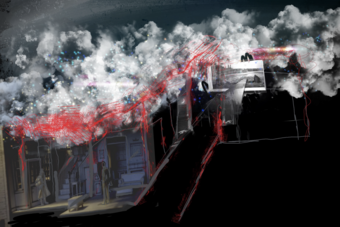


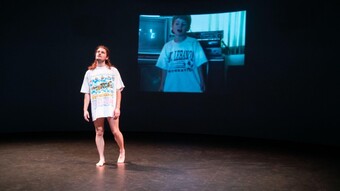



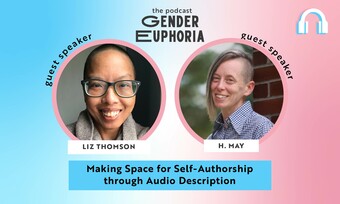



Comments
The article is just the start of the conversation—we want to know what you think about this subject, too! HowlRound is a space for knowledge-sharing, and we welcome spirited, thoughtful, and on-topic dialogue. Find our full comments policy here
Awesome article. I am so glad to read this, and while I have a slightly "other" background, I absolutely agree with a goal of becoming, "bold and flexible" in how we direct, teach and interact with actors, writers and theater makers.
I totally agree with Harriet. Since when was asking questions a sign of insecurity! I too use those phrases because I am happy to hear responses if they come. If responses don't come at least the collaborating team knows their input is also valid and welcomed.
I'm interested in whether it's even useful to talk about the "right" kind of language to use. Is this itself a masculine construct. Is defining the appropriate style of leading in itself a way of creating a binary that might not be useful? And might there not be a multitude of "right" languages unique to each of us as leaders.
Further thoughts on this:
http://swimponypa.wordpress...
This makes me think of the newly launched #BanBossy campaign:
http://abcnews.go.com/US/sh...
Assertion! Empowerment! Leadership! Let's do it.
I enjoyed your post. Initially had a few buttons pushed because I didn't necessarily see those questions as a lack of power, but allowing for sensitive collaboration. But I appreciate the value and clarity of your perspective. Sometimes a simple shift from "can we try that"? to "let's try that" can color the process of relationship with actors in subtle and fruitful ways. I appreciated your story about the famous director. I'm not positive of whom you were indicating, but I do know that I enjoyed immensely reading a similar story in Frank Langella's book about a revered director [that he didn't revere] by the initials of LS. It's very funny. Luckily I have had very few encounters with directors who are basically bullies. I probably fall somewhere between the 'good father' and 'camp counselor' archetype. I agree with you that a balance between boldness and flexibility with a willingness to listen is key for maximum win/win benefits. I don't think humility is a necessary requirement to be a good director, but it sure is nice when you come across it.
I certainly think that some of what I describe as "qualifiers" can be used as a language of collaboration. I use these questions often in my teaching and direction. However, in sitting back and listening to it come from the mouth of a student, I re-heard the small ways some of these qualifiers or questions (or perhaps the accumulation or tone of them) can dilute the direction. It made me re-think my own use of language and added to a series of much larger conversations about language and power that have been brewing for years.
My goal with this essay was not to discourage the use of questions in a creative process - indeed I think they are important tools for clarifying and encouraging engagement and a vital part of a renewed language of power. Instead, my intention was to bring a new awareness to the language we use and the messages it sends. This discussion, while housed inside the context of talking about being a woman, is actually a conversation about language and power. I'd like to engage in a new kind of powerful language and creative practice.
I'm so glad this essay has encouraged discussions and I feel as though I'm getting the chance to learn through each response. Thank you for taking the time to engage thoughtfully.
Very thought-provoking article, Thank you.
If offered in a true spirit of collaboration, inquiry is an example of good communication in any leader of any gender.
There is an interesting new study that showed that USians prefer a "feminine" style of leadership (whether or not a collaborative style is "feminine" is another story). Strong majorities prefer leaders (or directors, in this case) who "listen, consult and ask questions," vs. those who "talk, give orders and answer questions."
http://bit.ly/1dzm38n
I understand there are serious issues with women being taken seriously, and anyone can improve her communication style, but I do think, "Can we try this?" is not necessarily an example of poor communication.
I've heard these phrasings from directors of both genders, including myself, in service of many styles of directing. I understand and honor your point here, but I think this may be overthinking the matter a bit.
You know, when I use those phrases (and I do a lot) -- it isn't because I'm insecure, but because I want buy in from the actors -- and I want to keep open to other ideas they might have. It isn't at all because I'm insecure. Why do we always assume that the way men do things is better? I want to collaborate with people and get their ideas and input as partners and equals. I suggest or propose, but want to make it clear that all artists are most welcome to disagree or contribute other ideas. It's about creating an open atmosphere in the room. It has nothing to do with my lack of confidence!
Agreed. I want collaborative input from my actors, and if they don't understand my notes I want to give them every opportunity to ask for clarification. I don't see where asking if they get it, or if my note resonates with their ideas and preparation, weakens my vision one iota.
I agree, Harriet. As an actor I hate having choices forced on me without my understanding and agreeing with them, and as a director, I extend the same courtesy to my actors. And I agree with Andrew, as well. Sometimes we don't realize our own communication shortcomings, and opening the door for an insecure actor to say, "I'm not sure I get what you're saying," is a way of making the cast safe. It also makes it easier for them to offer ideas I haven't thought of. If my vision has to be held to with an iron fist, it probably isn't a very good vision. For me, the vision is a framework on which can be hung many things. I hold firm to the framework, but I believe the ensemble effort produces the best final product.
Interesting--I direct and teach directors. Actually, I've noted both male and female directors, both students and professionals, follow direction with "yes?" or "do you know what I mean?" or "make sense?" And I've scrubbed it out of my students' language not because I find it diminuative, but actually because I believe it to be coercive. The actor will generally always say yes when asked any of those questions. The actor will almost always nod. So the director succeeds in gaining validation, but learning nothing about whether or not the direction has been received or understood by the actor.
I find shaping the voice of a leader requires helping each learn what leadership style works for them. The tactics of direction are many and varied. Directors fulfill a number of archetypes: the bad daddy (dominate), the good father (guide), the mother (nurture), the big sister (charm and boss), the bitch (overpower), the camp leader (make it fun), the coach, the shaman etc. The spectrum of leadership is wide and ever evolving as the field becomes more diverse and different leadership styles enter the picture. The important thing is that a director recognize what is effective for her. If leadership were a dress, which fits best? Which can you move in?
While I know that the deck is stacked, my answer has been to change the cards by teaching and graduating a highly diverse group of kickass directors. THEY change the language. They forge new paths of leadership.
They are the new collaborators.
Thanks so much for this. Been mulling over these ideas for quite some time: great to see them articulated so beautifully and as a call to action.
Yes, Jess, This is an excellent article and as a female director I recognize some of those qualifiers that I have heard myself saying from time to time; however the more work I get, the less I feel like I have to add those little polite needs of approval. But therein lies the rub. Getting the work. I often allow myself to be discouraged by the nagging feeling that if I were a up for a job and it were between me and male director and we both made compelling and visionary proposals on a project, the powers that be who hire directors, would hear him speaking the theatrical gospel while my vision and deep understanding of the story are given polite nods…and I have watched, repeatedly, the bigger, more prominent jobs generally going to a man. But not always. It is changing and more and more women are making their mark on the theatrical map, myself included. I may not have crossed over yet to the big time but I am proud of every project that I have worked on so far. I would like to think that I am regarded as someone who comes to the table deeply prepared and clear in my mind of the story I am telling, but also one who respects the process of collaboration without dominating my colleagues into my way of thinking. I don't always have the best idea in the room and that is why I trust my designers and actors who often solve problems for me as I navigate the ship. I am smart enough to take a better idea if it comes my way without apologizing for it or pretending that I had thought of it all along…indeed I am grateful when everyone in the room is charged and inspired to suggest ideas, because it means that my colleagues know that are respected and in a safe and creative environment. So I agree, the dialogue in our heads has to change when we hear ourselves undercutting our certainty because of fear that we will be thought of in a negative way. Trusting in yourself, maintaining a high work ethic, giving respect and kindness needs no apology.
Bold, powerful, honest, and insightful. We need more of this.
This applies to any type of female leader.
Nailed it. You nailed my experience of figuring out my directing voice. I'm still guilty of habitually undercutting my own language in the rehearsal room, and I know it happens most when I do not own my big ideas. But you're spot on regarding there being other (better) paths to powerful directing than the patriarchy-aping bully model, as well. I cringe whenever I see productions of the "break them down/build them up" variety; I want no part of that empty model of working.
I will be mulling over this piece for some time, as I continue to remake my own directing language into the kind of collaborative, yet powerful, language I want to put into the world; thank you for putting these ideas into words.